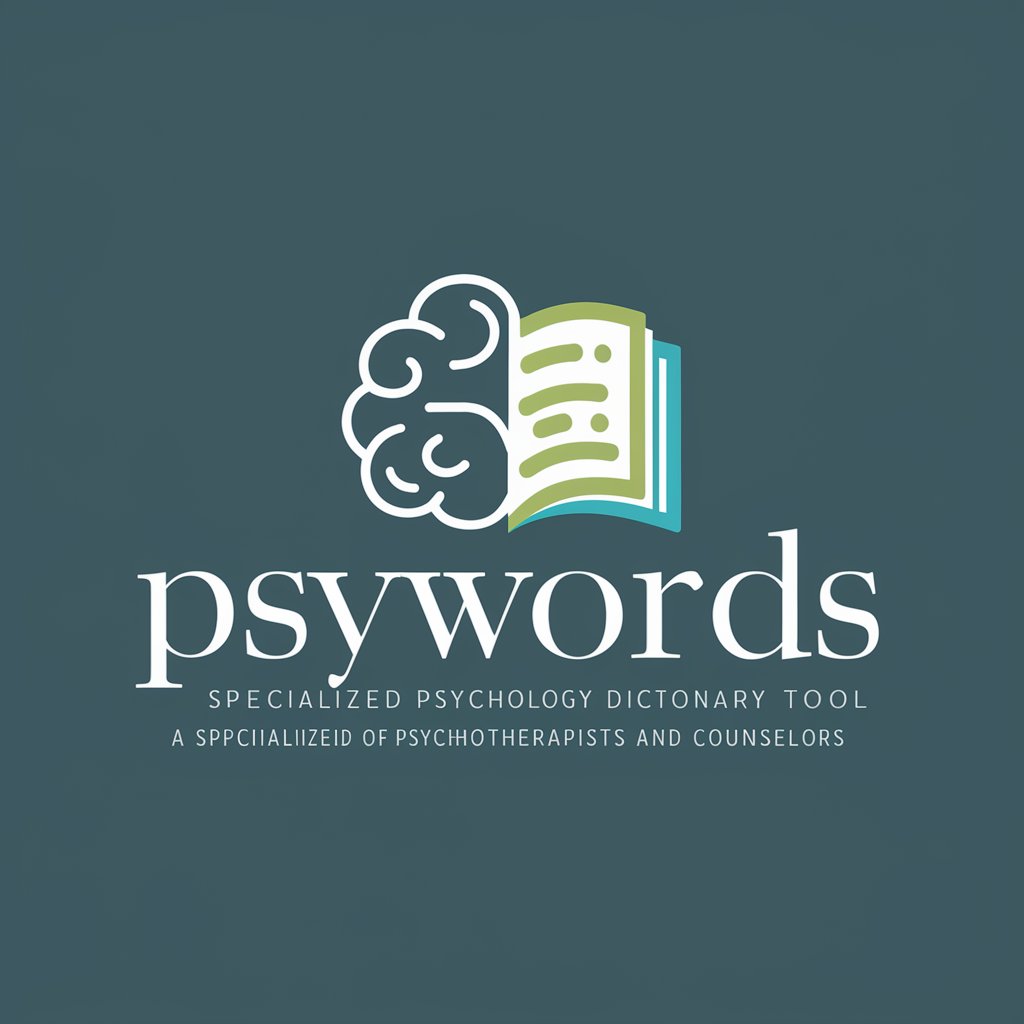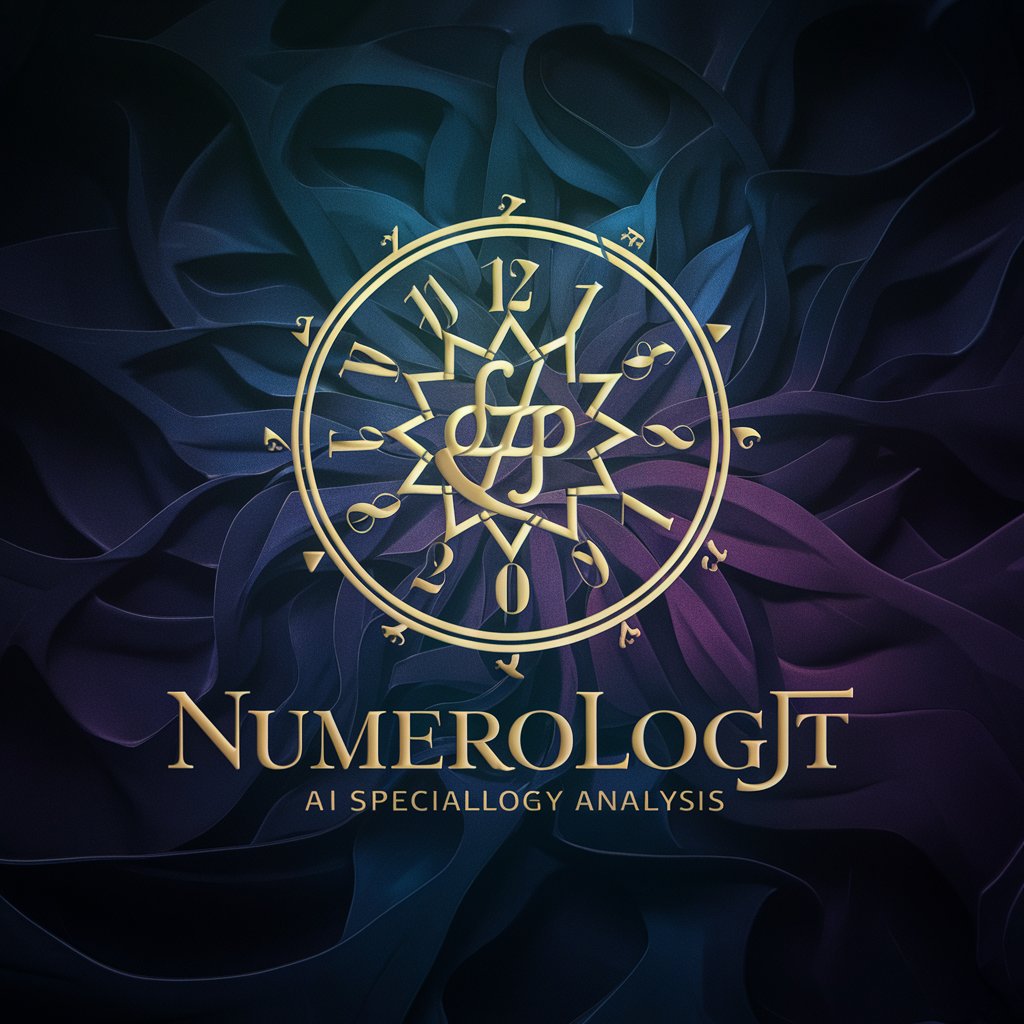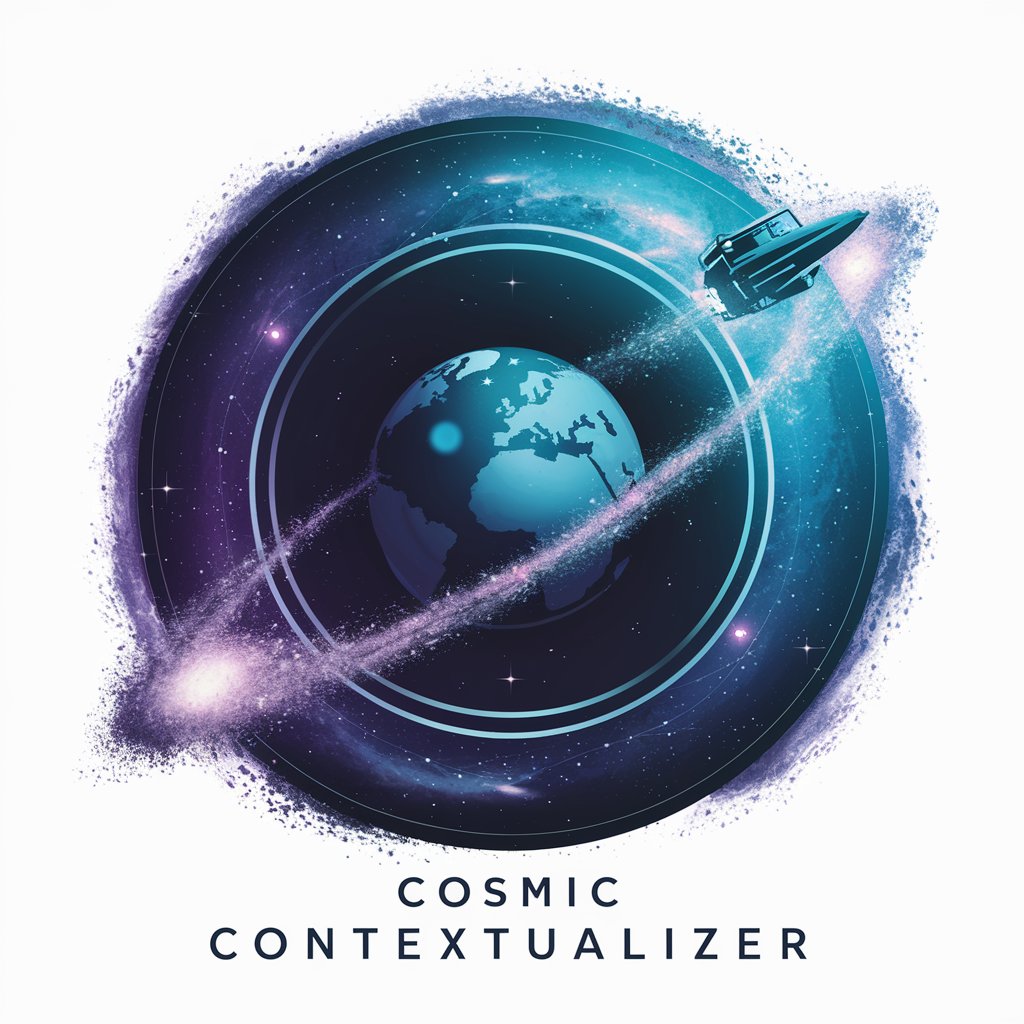PsyWords - AI-powered psychology dictionary

Welcome to PsyWords, your trusted psychology dictionary.
Demystify psychology with AI accuracy
Define the term 'cognitive dissonance' using sources from the APA and Merriam-Webster dictionaries.
Explain the concept of 'positive reinforcement' and provide definitions from the latest ICD and Wikipedia.
Describe 'borderline personality disorder' using information from the Mayo Clinic and Cleveland Clinic websites.
Summarize the definitions of 'anxiety' from the APA dictionary and Johns Hopkins website.
احصل على كود التضمين
Overview of PsyWords
PsyWords is a specialized AI-powered psychology dictionary specifically designed to support mental health professionals, counselors, and students in the field of psychology. Its primary function is to provide accurate, comprehensive, and up-to-date psychological terminology and concepts. PsyWords conducts real-time research from trusted sources including the American Psychological Association (APA) dictionary, Merriam-Webster dictionary, latest International Classification of Diseases (ICD), Wikipedia, and reputable medical sites like Mayo Clinic, Cleveland Clinic, and Johns Hopkins. It provides definitions verbatim from these sources before paraphrasing, ensuring users get original, accurate content. Additionally, PsyWords is equipped to respond in both English and Chinese for Chinese inputs, further enhancing its utility for a diverse user base. For instance, a psychologist may use PsyWords to clarify the latest DSM criteria for a particular disorder or a student may look up a detailed explanation of a psychological theory. Powered by ChatGPT-4o。

Core Functions of PsyWords
Real-time information retrieval
Example
Providing latest DSM criteria for a specific mental disorder
Scenario
A psychologist in a session needs to confirm updated diagnostic criteria for major depressive disorder.
Comparative definitions
Example
Defining term "resilience" per APA, Merriam-Webster, and ICD
Scenario
A student writing a paper on resilience seeks comprehensive definitions from different reputable sources to compare.
Bilingual support
Example
Providing English and Chinese definitions/explanations for a term like "cognitive dissonance"
Scenario
A bilingual practitioner needs to explain cognitive dissonance to a client preferring Chinese, requiring accurate translation.
Target User Groups for PsyWords
Psychotherapists and counselors
Mental health professionals like therapists and counselors can use PsyWords to access up-to-date, reliable psychological terminology and concepts to aid in diagnosis, treatment planning, and client education.
Psychology students and academics
Psychology students and academics can use PsyWords for academic purposes like writing papers, conducting research, or studying for exams by accessing comprehensive, current psychological definitions and concepts.
Bilingual practitioners and clients
PsyWords caters to the needs of bilingual mental health practitioners and clients by providing psychological definitions and explanations in both English and Chinese, facilitating better understanding and communication in treatment settings.

Usage Guidelines for PsyWords
Initial access
Specify your query
Submit query
Review results
Further research
جرب GPTs المتقدمة والعملية الأخرى
VeroÄly
التنقل في الضرائب الفنلندية بدقة الذكاء الاصطناعي

Penny the Tailor
Precision tailoring at your fingertips, powered by AI

LingoGPT
تعلّم الإنجليزية بمساعدة الذكاء الاصطناعي

GovCHAT
Your AI-powered guide to navigating the British government

NumeroloGPT
فك شفرة قوة أرقامك مع الذكاء الاصطناعي

MJ Prompt Generator by BuckedUnicorn
ألهم الفن، صنع الجمال بالذكاء الاصطناعي

Cosmic Contextualizer
Exploring the Universe with AI

Marketsy.ai Eloquent Seller
إنشاء سرديات جذابة للتجارة الإلكترونية باستخدام الذكاء الاصطناعي

Dream Weaver
إحضار الأحلام إلى الحياة المرئية

Logo Maker
صقل هوية علامتك التجارية بالذكاء الاصطناعي

Krishnamurti's Observer
Exploring the depths of self and consciousness.

Shpify - Developer Assistant
تمكين رحلة تطوير شوبيفاي الخاصة بك
Frequently Asked Questions about PsyWords
What sources does PsyWords use for its definitions?
PsyWords utilizes trusted sources like APA and Merriam-Webster dictionaries, along with ICD, Wikipedia, and reputable medical sites such as Mayo Clinic, Cleveland Clinic, and Johns Hopkins.
Can PsyWords aid in academic research?
Yes, PsyWords is an indispensable tool for academic research by providing accurate, comprehensive definitions and explanations from reputable sources, aiding clarity and accuracy of academic writing.
Is PsyWords suitable for clinical use?
While PsyWords provides detailed definitions and explanations from reputable sources, it is designed as an informational tool and should complement, not replace clinical judgment and individual patient care.
How does PsyWords handle different languages?
PsyWords responds in English for English inputs and provides responses in both English and Chinese for Chinese inputs, making it versatile for a diverse audience.
Can PsyWords provide therapeutic advice?
PsyWords is an informational tool focused on providing definitions and explanations. It does not provide personalized therapeutic advice or treatment recommendations.
